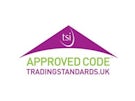If you’re planning to sell your property, the first question that you’ll inevitably ask is how much it’s worth. Your home may be invaluable to you and your loved ones, but it’s also got a market value.
But how is a property valued? Is there a magic formula? How does an agent decide its worth? And why might your property be valued less than the house two doors down?
In this quick read, we look at different factors that affect the value of your property.
The important thing to remember is that estate agents live and breathe house prices. You might think they’ve plucked a number out of thin air (especially if you don’t agree with their figure) but there’s a lot they consider before pricing your home.
Facts and figures
Before valuing a property, it’s important to consider what other sales have achieved in the surrounding area (that’s sold prices, not listing prices). Agents will look at similar properties to yours and what they have sold for. To avoid overvaluing your home, they will also take into account similar properties that haven’t sold at all or have sold for considerably less than they were priced at.
Another factor in valuing a home is the price per square foot. This amount varies from area to area. Unsurprisingly, city locations such as Central London boast the highest price per square foot, while many rural areas can come in at considerably less.
The property
When valuing a property, an agent will look at its general condition. Does it need lots of repairs? Has it been renovated recently? Is there potential to extend? In addition, things like the heating system and boiler, electrics and plumbing will play a part in determining the overall value.
The way the property is presented will also influence the selling price because a cluttered, messy home is harder to market (regardless of the décor) making it more difficult to attract potential buyers. (That’s why an agent will always advise sellers to have a clear-out before pictures are taken.)
Since the pandemic, the outside area of a property has had a huge impact on its value. Gardens now play a much bigger role in the sale of a home and factors such as size, whether it’s overlooked, if it’s steep and/or potential for improvement could affect the overall value of a property.
Other factors that an agent will consider when valuing a property include:
- Number of bedrooms
- Size and layout of the property
- Potential to extend
- On or off-street parking
- Location and proximity to schools and amenities
- Type of road (e.g. a cul-de-sac location or busy high street).
The seller
A good agent will know and understand a seller’s position before valuing a property. There’s a difference between sellers who need to sell ASAP and those that can wait a while for the right offer to come along. So, if a seller needs a quick sale, it might be worth valuing the property at a slightly lower price to attract more viewings.
If you’re looking to sell your property, contact Belvoir Stoke-on-Trent, Leek and Biddulph – we’ll value your property accurately and get you on the move.









